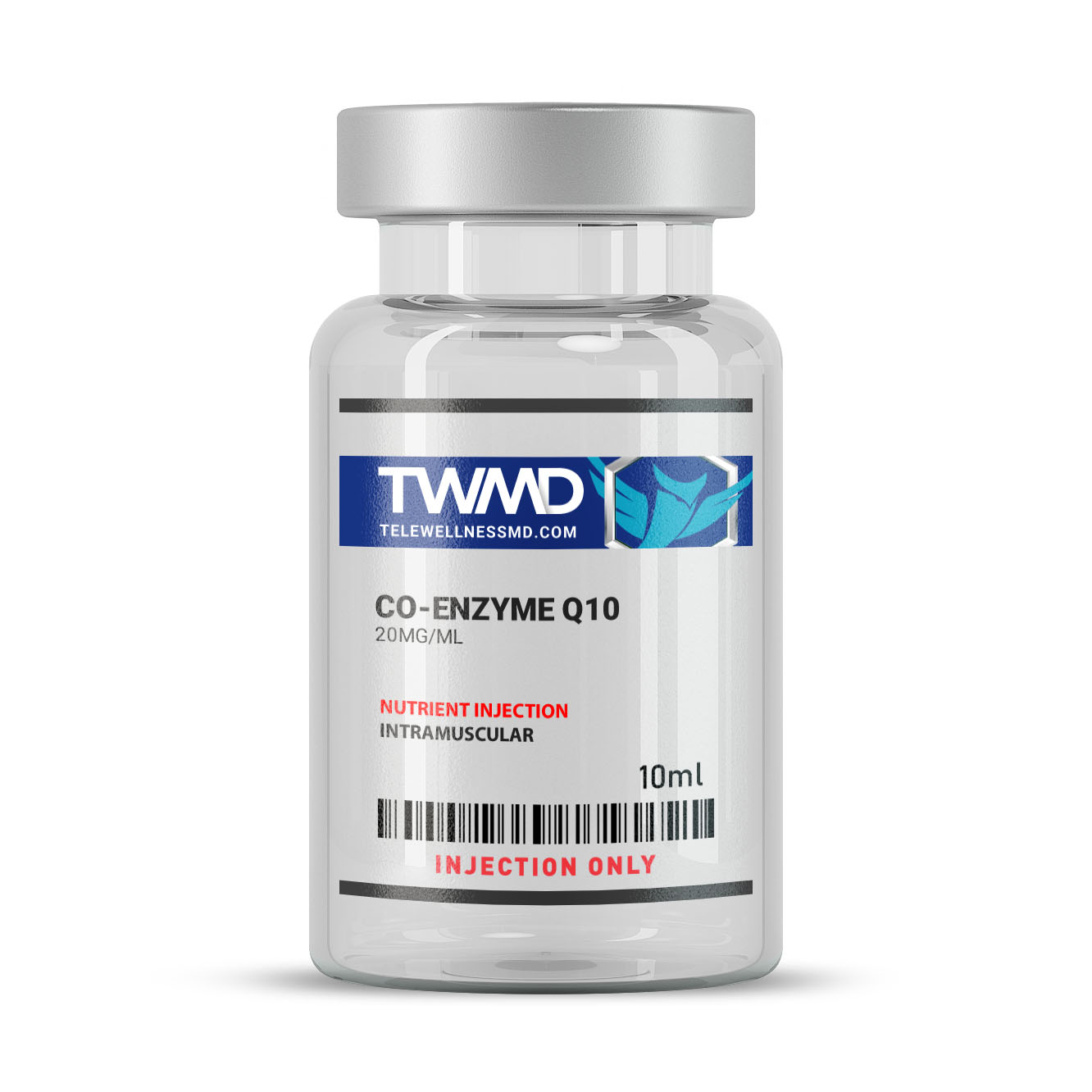Coenzyme Vitamin Injection Uses and Benifits
In the world of vitamins and supplements, Coenzyme Vitamin Injection have gained traction. But what exactly are they? Coenzyme Q10 (CoQ10) is a specific type of Coenzyme Vitamin Injection often delivered through injections. Moreover This blog dives into the world of coenzymes, explores the uses and benefits of Coenzyme Q10 injections, and clarifies common misconceptions.
What is a Coenzyme Vitamin?
Coenzyme vitamins aren’t technically vitamins. Vitamins are essential nutrients your body needs but cannot produce on its own. Moreover Coenzymes, on the other hand, are helper molecules that work alongside enzymes in the body. They play a crucial role in various biochemical reactions, enabling enzymes to function efficiently.
Coenzyme Q10 (CoQ10)
Coenzyme Q10 (CoQ10) is a naturally occurring coenzyme present in all your cells. It’s vital for energy production, cellular protection, and mitochondrial function (mitochondria are the powerhouses of your cells). Moreover Coenzyme Q10 injections provide a concentrated dose of CoQ10 directly into the bloodstream.
Coenzyme vs. Cofactor
The terms “coenzyme” and “cofactor” are sometimes used interchangeably. While closely related, there’s a subtle difference. Coenzymes are organic molecules, often vitamins, that directly participate in enzymatic reactions. Moreover Cofactors can be organic or inorganic molecules that bind to enzymes and activate them, but they don’t directly participate in the reaction itself. CoQ10 functions as a coenzyme.
Coenzyme Function
Coenzyme function is essential for various bodily processes:
- Energy Production: CoQ10 plays a key role in the electron transport chain, a series of reactions within mitochondria that generate cellular energy (ATP).
- Cellular Protection: CoQ10 acts as an antioxidant, protecting cells from damage caused by free radicals.
- Organ Function: CoQ10 is particularly important for organs with high energy demands, such as the heart, brain, and muscles.
Benefits of Coenzyme Q10
Coenzyme Q10 (CoQ10) injections are used for various purposes, although research is ongoing:
- Heart Health: CoQ10 deficiency might be linked to heart failure. Moreover Studies suggest CoQ10 injections might improve symptoms in some individuals.
- Statin Side Effects: Statin medications used to lower cholesterol can deplete CoQ10 levels. CoQ10 injections might help reduce muscle cramps, a potential side effect of statins.
- Exercise Performance: Some studies suggest CoQ10 may enhance exercise performance and reduce fatigue in certain individuals.
What is a Coenzyme? (with Example)
Coenzymes, like CoQ10, are helper molecules that partner with enzymes. Moreover Imagine an enzyme as a lock, and a specific substrate (molecule) as the key. The coenzyme acts like a lubricant, allowing the key (substrate) to fit smoothly into the lock (enzyme) and trigger the desired reaction.
Examples of Coenzymes
Several vitamins function as coenzymes in the body. Here are a few examples:
- Coenzyme Q10 (CoQ10): As discussed, CoQ10 plays a vital role in cellular energy production.
- Vitamin B3 (Niacin): Niacin acts as a coenzyme in various reactions involved in energy metabolism and fat breakdown.
- Biotin (Vitamin B7): Biotin is a coenzyme crucial for fatty acid synthesis, certain amino acid metabolism processes, and energy production.
Is a Coenzyme a Protein?
Coenzymes are not proteins. Moreover While some coenzymes, like CoQ10, have a complex structure, they are not made up of amino acid chains like proteins. Moreover Coenzymes can be organic molecules like vitamins, or inorganic molecules like metal ions.
Important Considerations
- Consult a Doctor: Before considering Coenzyme Q10 injections, consult your doctor to determine if they are right for you and discuss potential interactions with any medications you take.
- Lifestyle Habits: Moreover A healthy diet, regular exercise, and managing stress are crucial for overall well-being alongside potential CoQ10 supplementation.

